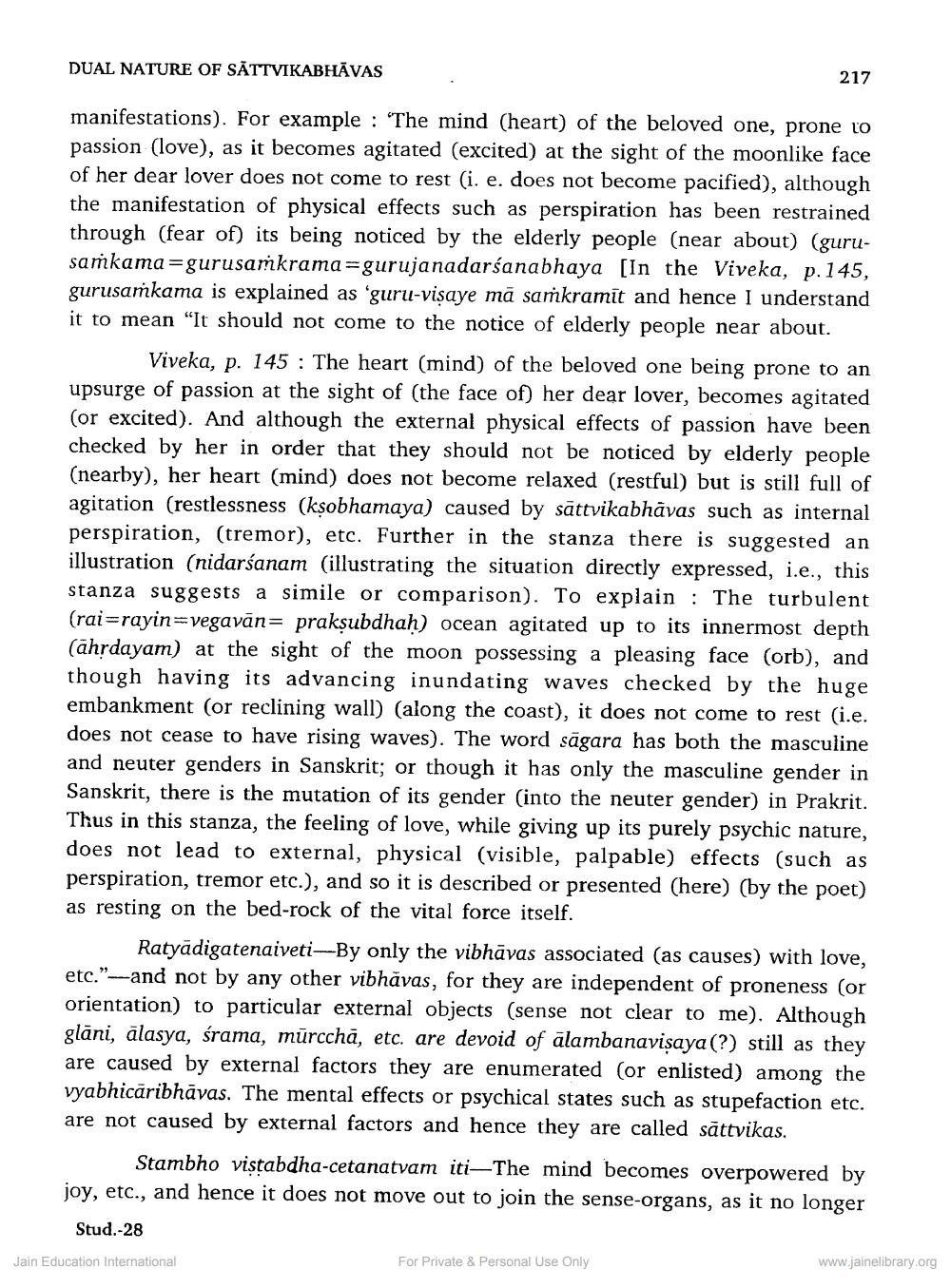________________ DUAL NATURE OF SATTVIKABHAVAS 217 manifestations). For example : "The mind (heart) of the beloved one, prone to passion (love), as it becomes agitated (excited) at the sight of the moonlike face of her dear lover does not come to rest (i. e. does not become pacified), although the manifestation of physical effects such as perspiration has been restrained through (fear of) its being noticed by the elderly people (near about) (gurusamkama=gurusamkrama=gurujanadarsanabhaya [in the Viveka, p. 145, gurusamkama is explained as 'guru-visaye ma samkramit and hence I understand it to mean "It should not come to the notice of elderly people near about. Viveka, p. 145 : The heart (mind) of the beloved one being prone to an upsurge of passion at the sight of the face of) her dear lover, becomes agitated (or excited). And although the external physical effects of passion have been checked by her in order that they should not be noticed by elderly people (nearby), her heart (mind) does not become relaxed (restful) but is still full of agitation (restlessness (ksobhamaya) caused by sattvikabhavas such as internal perspiration, (tremor), etc. Further in the stanza there is suggested an illustration (nidarsanam (illustrating the situation directly expressed, i.e., this stanza suggests a simile or comparison). To explain : The turbulent (rai=rayin=vegavan= praksubdhah) ocean agitated up to its innermost depth (ahrdayam) at the sight of the moon possessing a pleasing face (orb), and though having its advancing inundating waves checked by the huge embankment (or reclining wall) (along the coast), it does not come to rest (i.e. does not cease to have rising waves). The word sagara has both the masculine and neuter genders in Sanskrit; or though it has only the masculine gender in Sanskrit, there is the mutation of its gender into the neuter gender) in Prakrit. Thus in this stanza, the feeling of love, while giving up its purely psychic nature, does not lead to external, physical (visible, palpable) effects (such as perspiration, tremor etc.), and so it is described or presented (here) (by the poet) as resting on the bed-rock of the vital force itself. Ratyadigatenaiveti-By only the vibhavas associated (as causes) with love, etc."--and not by any other vibhavas, for they are independent of proneness (or orientation) to particular external objects (sense not clear to me). Although glani, alasya, srama, murccha, etc. are devoid of alambanavisaya(?) still as they are caused by external factors they are enumerated (or enlisted) among the vyabhicaribhavas. The mental effects or psychical states such as stupefaction etc. are not caused by external factors and hence they are called sattvikas. Stambho vistabdha-cetanatvam iti--The mind becomes overpowered by joy, etc., and hence it does not move out to join the sense-organs, as it no longer Stud.-28 For Private & Personal Use Only www.jainelibrary.org Jain Education International




